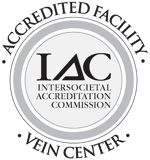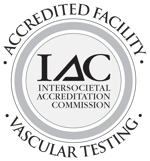Poor circulation is much more than feeling cold most of the time. Or, an issue that may lead to numbness or tingling in your extremities. In many cases, it can have a substantial impact on your overall health and well-being. In fact, in some cases, poor circulation may even have an impact on your mental health.
Let’s take a look at these common signs of poor circulation and their potential impact on you.
Poor circulation can increase the odds of cardiovascular failure
When your blood doesn't circulate properly, it can lead to increased edema, or swelling, throughout the body. Over time, that may increase the risk of congestive heart failure. Fluid accumulation can also be an early sign of heart failure, since it could indicate that the heart is unable to properly keep blood circulating through your body. If you do have signs of fluid accumulation, start working with your doctor early to help ensure that you get the treatment you need.
You may have an increased risk of stroke if you suffer from poor circulation
Patients who suffer from poor circulation may have a higher overall risk of suffering a stroke. Furthermore, they may have a risk of suffering more devastating outcomes as a result of a stroke. High systolic blood pressure is also linked with worse overall clinical outcomes for stroke patients. Watching for the signs and symptoms of stroke can prove particularly critical for patients who suffer from poor circulation, since they may need prompt medical attention.
Patients with poor circulation may have increased risk of suffering from blood clots
Abnormal blood flow patterns, including overall poor circulation, are one of the potential indications of thrombosis, or blood clots. Blood clots can lead to extreme complications, including increased risk of stroke and heart attack. Blood clots can also lead to considerable breathing problems. Patients with poor circulation should take particular steps to decrease the risk of blood clots when flying or when spending large amounts of time stationary, including while recovering from other serious illnesses.
Poor circulation may raise the risk of infected skin ulcers.
Circulation can be critical to healing and recovery. Patients with poor circulation may have an increased risk of suffering from infected skin ulcers due to that slower healing process. Patients with circulation problems may also heal slower in general, including an increased risk of suffering from infection during the recovery process, since the body's natural healing factor may not kick in as quickly.
Patients with circulation problems may have a higher risk of suffering from mental health disorders.
Blood circulation can, in general, have considerable impact on mental health. Poor circulation may increase the risk of developing conditions like anxiety or depression as well as increasing the risk of developing schizophrenia. Some patients with poor circulation may have an overall greater likelihood of suffering from moderate symptoms of anxiety or depression due to pain or tiredness, which are often part of the poor circulation package. Those symptoms may create a self-compounding cycle, particularly if patients suffer from increased anxiety regarding dangerous symptoms that could be associated with poor circulation.
Getting Help with Poor Circulation Can Help Improve Conditions and Lower Risk
Dealing with poor circulation can not only be frustrating, it may increase your risk of developing a number of other devastating health conditions. By working with a medical care provider, like the vascular physicians at The Cardiovascular Care Group, you can decrease symptoms of poor circulation and help lower your overall risk.
Contact us today to learn more about how we can help you fight the potential impact of poor circulation.








.jpg?width=944&name=Castle-Connolly-Top-Doctors-Emblem-Large%20(4).jpg)